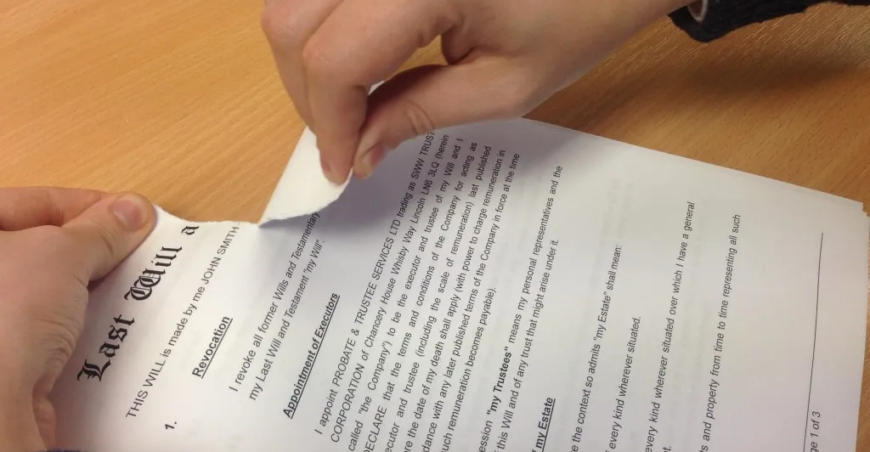When you revoke a will you void the previous will, this mainly happens when the old will no longer serves a purpose to your current situation. There are many instances in which a Will drafted at an earlier time in life is no longer applicable to you and the people in your life. When this happens, you might want to revoke that older Will in favor of a new one. There are plenty of reasons and methods for revoking a Will, and it is important to know your options.
What Does it Mean to Revoke a Will?
When you revoke a Will, you are completely voiding an existing document that you previously used as your Will. There are many reasons that could lead to this being necessary, such as life-changing events, divorces, new marriages, and deaths in the family. You might have sold property or moved assets that were previously bequeathed according to your Will. However, regardless of the reasoning, the most important thing to remember is that you must properly revoke a Will you do not want to be probated upon your passing. If it is not clear which Will you intend to govern your estate after your passing, it becomes a complicated matter for your loved ones and the probate court.
Revocation of a Will: Subsequent Writing
One of the simplest methods, and certainly one of the most common, ways to revoke a Will is through a subsequent writing. This means that you must write an entirely new Will that is distinctly different from the document you wish to revoke. In the new document, it is important to include a statement that clearly declares that all previous Wills are to be disregarded. This will ensure there is no confusion as to which Will reflects your wishes in the future.
It is also important that this new Will follows all the requirements to be valid. For example, it is important to have witnesses sign the document, and it is a good idea to work with a probate lawyer. If your subsequent writing isn’t valid, it can’t revoke your previous Will.
Revocation of a Will: Physical Act
Another way to revoke a Will that no longer reflects your estate and your wishes is to physically destroy the original document. This could be ripping it up, burning it, or any other physical act that would render it unreadable. Be sure to also destroy all copies of this Will. You may even have others destroy it upon your request. This act must be performed with the intent of revoking your Will. This method may be used along with others, such as the subsequent writing of another Will.
Revocation of a Will: Operation of Law
Finally, the revocation of portions of a Will can happen through the operation of law. This typically happens in the event of a new marriage, annulment, or divorce. When these legal acts are taken, it can leave portions of your Will in which a former spouse is named as a beneficiary as void, or can void the entire Will. This happens automatically.
In order to make your intentions clear, it is a good idea to state in your Will after a divorce or new marriage any changes you want to make or to reinforce that you wish for your previous spouse to continue holding their existing standing in your Will.

